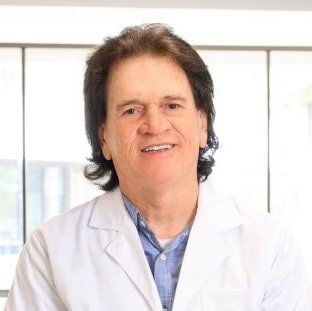
New anti-cancer drugs for treatment resistant and advanced estrogen receptor positive (ER+) breast cancer
Published: 05/11/23 8:35 AM

Des Richardson
Project Description: Estrogen receptor positive (ER+) breast cancer is the most common breast cancer subtype accounting for around 70% of all cases. Patients with ER+ breast cancer are commonly treated with hormonal therapy that blocks the action of estrogen, a factor that fuels the growth ER+ breast cancer cells. While most tumours respond to hormonal treatment, around 30% of ER+ tumours are either initially resistant or develop treatment resistance, resulting in relapse and progression to metastatic disease. In this NBCF funded study, Prof Des Richardson (NHMRC Senior Principal Research Fellow, Griffith University) will develop and test a series of new anti-cancer drugs designed to overcome resistance to Tamoxifen, a commonly prescribed hormonal treatment to lower the risk of breast cancer returning after initial treatment. Importantly, these new drugs will be based upon an existing effective anti-cancer compound made by the investigators. The new drugs will be tested for safety and their potential to overcome Tamoxifen resistance, inhibit cancer growth and metastatic progression in pre-clinical models of ER+ breast cancer.
Why the Work is Needed: Resistance to hormonal therapy is a major clinical challenge for the treatment of ER+ breast cancer as it can relapse and progress to metastatic disease, a lethal form of breast cancer with very poor survival outcomes. New treatments that can overcome treatment resistance are desperately needed.
Expected Outcomes: This study will result in the development of next generation safe and effective anti-cancer drugs for treatment resistant ER+ breast cancer.
Project Details
Estrogen receptor positive (ER+) breast cancer is the most common breast cancer subtype accounting for around 70% of all cases. Patients with ER+ breast cancer are commonly treated with hormonal therapy that blocks the action of estrogen, a factor that fuels the growth ER+ breast cancer cells. While most tumours respond to these hormonal treatments, around 30% of ER+ tumours are either initially resistant or develop treatment resistance, resulting in relapse and progression to metastatic disease.
Prof Des Richardson (NHMRC Senior Principal Research Fellow, Griffith University) has previously developed a set of anti-cancer drugs, including the second-generation drug, DpC, that had a favourable safety profile, could overcome Tamoxifen resistance and prevent the growth of tumours in preclinical models of cancer. As a result of this work, DpC was tested in a Phase I clinical trial for solid cancers, however, DpC was found to affect muscle health adversely, and the clinical trial was ceased. Importantly, the team have now discovered the reason why this drug affected muscle health and are now in a position to improve the formulation to overcome this undesirable side effect.
With this NBCF support, Prof Richardson and the team will develop and evaluate third generation ‘DpC-like’ drugs, tested for safety and their potential to overcome Tamoxifen resistance, inhibit cancer growth and metastatic progression in pre-clinical models of ER+ breast cancer. These new drugs have the potential to be new revolutionary therapies for treatment resistant ER+ breast cancer.